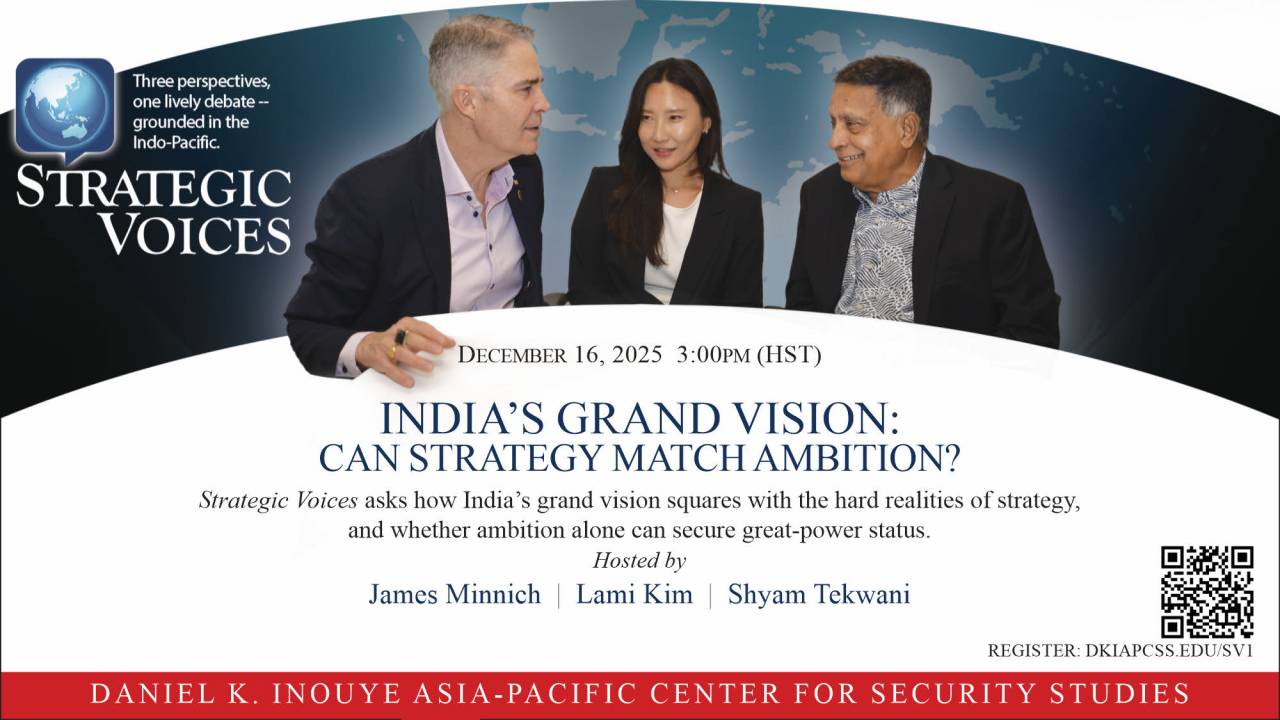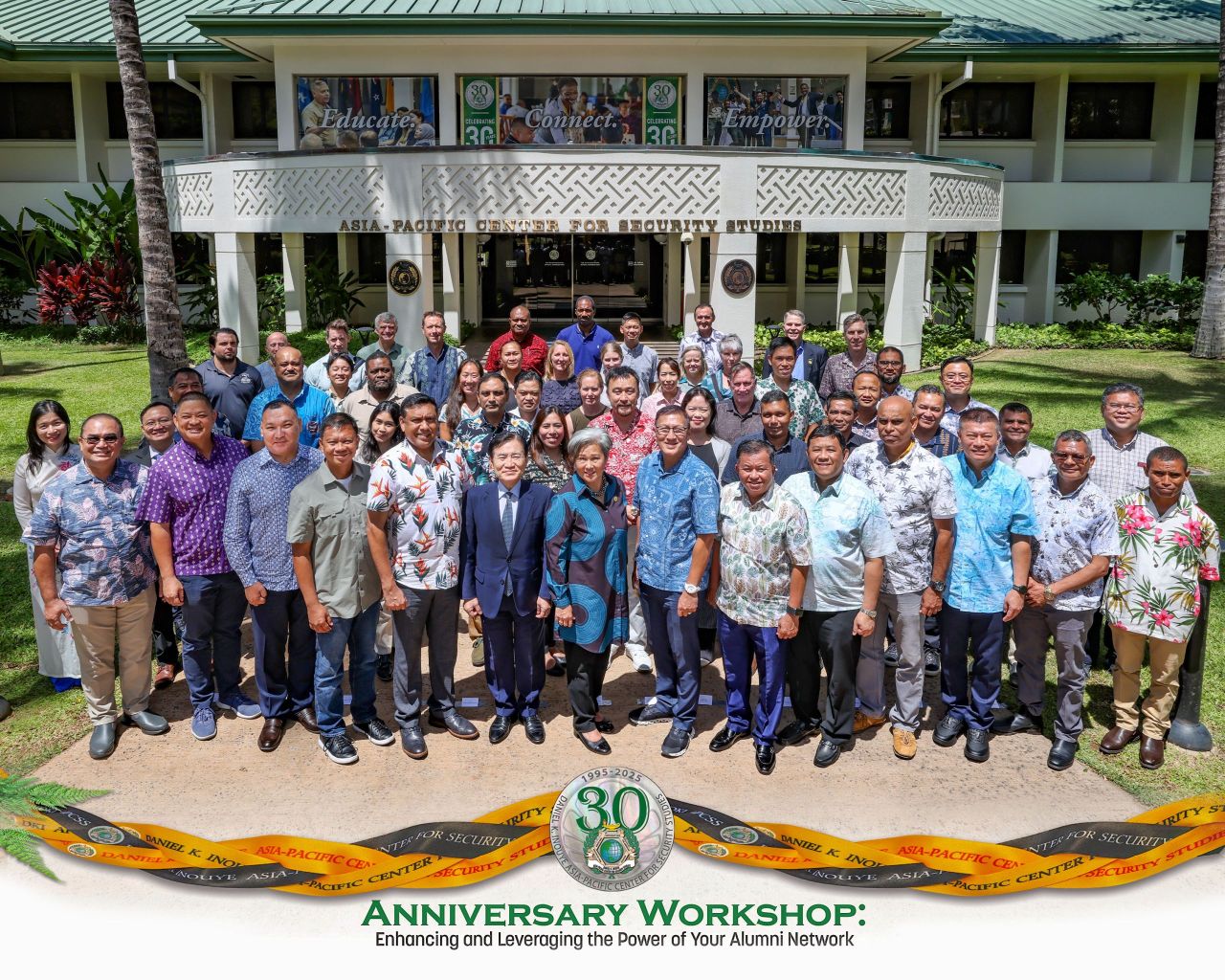By Dr. James M. Minnich
HONOLULU — August 19, 2025
Russia’s war in Ukraine has reshaped North Korea’s place in the world. What began with discreet transfers of artillery shells has expanded into a full-fledged strategic partnership—anchored by a formal defense treaty—that now delivers Pyongyang hard currency, advanced technology, and newfound leverage.
In Dialogue Episode 51, Dr. Victor Cha—one of the world’s foremost experts on Korean security and geopolitics—explains the stakes and the limited choices before Washington and its allies. As he observes, “It really shows that North Korea is not content to sit on its hands. They’re being very proactive about taking advantage of strategic situations where they see an opening.”
From Tactical to Strategic
By late 2022, North Korean munitions were appearing on the Russian frontlines. As Moscow’s battlefield needs grew, Pyongyang supplied millions of shells, tactical missiles, heavy artillery, and combat soldiers. What began as a transactional exchange matured into a strategic alliance, culminating in a 2024 defense pact—the tightest since the Cold War. As Dr. Cha explains: “How does a tactical relationship, a transactional relationship, become strategic? Because this is really an interesting case of that happening—and it was a proactive choice by both sides.”
Sanctions Bypassed
Far from halting the trade, sanctions have simply been rerouted. Rail links, short-sea routes, re-flagged vessels, falsified manifests, and ship-to-ship transfers now connect North Korean factories to Russian frontlines. Payments move through barter deals, front companies, and crypto channels. With Russia blocking the renewal of UN mechanisms, enforcement has all but collapsed. As Dr. Cha notes: “Russia has effectively dismantled all of that” by refusing to renew Resolution 1718, which dissolved the UN Panel of Experts.
Kim’s Windfall
The payoff is staggering. Estimates suggest North Korea has earned an estimated $20 billion since the war began. The influx stabilizes elite patronage networks, secures energy and food imports, and fuels the expansion of its munitions industry. Technology transfers accelerate missile, drone, and air defense programs. “North Korea’s ambitions are not status quo; they are revisionist,” Dr. Cha warns. “They are looking to improve their position.”
Rewriting the Playbook
For decades, U.S. policy centered narrowly on denuclearization. But today, Pyongyang’s nuclear arsenal is not just a shield—it is leverage, and currency for testing, sales, and barter in live conflicts. “We have to be open to new, perhaps even radical ideas,” Dr. Cha stresses. “Because what we’ve done for the last 40 years…is [what has produced] North Korea’s weapons program today, which is much more advanced and capable than what it was.”
China Sidestepped
Beijing’s once-dominant role as Pyongyang’s patron has waned. Russia now provides fuel, cash, and political cover, while Pyongyang diversifies its ties elsewhere. This erodes China’s leverage and emboldens North Korea to take risks. Dr. Cha cautions: “The real consequence for the United States…is that we’re now in a period of unregulated North Korean behavior.”
The Strategic Dilemma
Why are allied options so constrained? Escalation risks are higher, sanctions are toothless, and allied priorities diverge. “The tools that we’re familiar with…they don’t seem to work anymore,” Dr. Cha concludes.
A Path Forward: Strategic Entrapment
A way forward, Dr. Cha suggests, lies in blending pressure with calibrated openings—limiting Pyongyang’s choices to costly ones while preserving off-ramps. That means tighter U.S.–ROK–Japan coordination, sharper financial enforcement, and stepped-up maritime interdiction, balanced with limited humanitarian or economic initiatives tied to verifiable arms-control steps.
The immediate aim is not full denuclearization but freezing North Korea’s most destabilizing activities, raising the costs of proliferation, and keeping diplomacy alive. Dr. Cha calls this strategic entrapment—a strategy to exploit North Korea’s growing dependence on Russia. “I think there’s one vulnerability in the DPRK–Russia relationship, and that is if they become too close…North Korea starts feeling like it’s entrapped in the relationship with Russia.” The strategy, he explains, “is to ignite that sort of paranoia…about being dominated by another great power.
Still, the challenge remains formidable. “It’s one of the most difficult problems on the U.S. foreign policy agenda. Perhaps…it’s an impossible state.” Dr. Cha concludes.
Further Reading
Dr. Victor Cha is the author of nine books, including Powerplay: Origins of the American Alliance System in Asia (2018); Korea: A New History of South and North (2023); The Black Box: Demystifying the Study of Korean Unification and North Korea (2024); North Korea’s Sea-Based WMD Capability (2025); and China’s Weaponization of Trade: Resistance through Collective Resilience (2026).










[…] serve a critical strategic function for Kim Jong Un. In exchange for munitions, Pyongyang receives cash, fuel, food, and advanced military technology, including satellite and missile […]